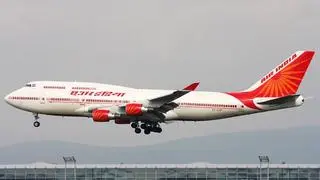The pandemic has altered the business dynamics for airlines and airports on an unprecedented scale, perhaps for forever. According to the International Air Transport Association, the domestic passenger traffic in India was down by 42 per cent in April 2021 versus April 2019 (before Covid-19), while it was 71 per cent lower in May 2021 compared to May 2019 (before Covid-19). As per various estimates, the international segment is taking a bigger hit — it is down by 80 to 90 per cent due to the suspension of scheduled flights.
Downturn or uptick, companies operating airlines and airports must now be able to rapidly scale up or down, quickly restart or pause business while maintaining the flexibility in keeping with the infection curve and market demand. In essence, they must become future-proof and resilient to overcome large-scale disruptions by leveraging emerging technologies that provide capabilities hitherto unavailable to them.
New capabilities
Today, airline and airport players must anticipate trends and plan resource utilisation to optimise costs and reliability. The ability to reduce costs while increasing operational efficiency is critical more than ever before. Emerging technologies such as artificial intelligence (AI), machine learning and predictive analytics can enable cost reduction and operational efficiencies.
An equally important capability that technology can foster is agility. By being agile, airline and airport companies can be resilient to market changes by accurately predicting market demand using cognitive technologies. Such capability would allow them to remain competitive and profitable. Further, they must augment their capacity and operations in real-time on the back of preventive maintenance. With deep-learning AI algorithms and Internet of Things (IoT) technologies such as the digital twin, it is possible to predict which aircraft need preventive maintenance. Similarly, airports can undertake corrective and predictive maintenance to identify and service assets that are likely to break down.
Lastly, airlines and airports must have the ability to implement the concept of digital health passes using blockchain technology to enable the return of global travel in Covid-19 times. For building these capabilities, industry players must quantitatively understand the as-is processes, including bottlenecks, and reinvent themselves with AI-powered intelligent workflows to reduce costs and improve operational efficiencies. They should bolster cybersecurity using a Zero Trust framework given the emerging threat landscape in the Covid-19 era. Above all, they need to embrace the hybrid cloud as the technology backbone to mitigate cybersecurity risks, foster adoption of AI models, enhance agility, catalyse innovation and as a stepping stone to digital transformation that is imperative to tide over the current and future challenges.
The writer is Country Managing Partner — IBM Services, India/South Asia







Comments
Comments have to be in English, and in full sentences. They cannot be abusive or personal. Please abide by our community guidelines for posting your comments.
We have migrated to a new commenting platform. If you are already a registered user of TheHindu Businessline and logged in, you may continue to engage with our articles. If you do not have an account please register and login to post comments. Users can access their older comments by logging into their accounts on Vuukle.